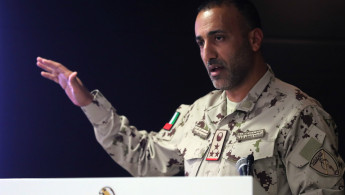The Southern Movement has 'little tolerance' for UAE's ambitions in Yemen
One of its most obscure Faustian bargains, however, is coming back to haunt the Emirati generals enmeshed in the Yemeni civil war.
In 2015, when the UAE chose to arm and fund an umbrella organisation of Yemeni secessionists known as the Southern Movement, or al-Hirak, the regional power was operating under the well-worn assumption, "The enemy of my enemy is my friend."
Like the UAE, al-Hirak opposed Iranian-backed Houthi rebels who had overrun much of Upper Yemen, including Sanaa.
The UAE agreed to provide al-Hirak military aid in exchange for al-Hirak's participation in a Saudi-led coalition mobilised to defeat the Houthis, return the Yemeni government to power, and stabilise the country.
While al-Hirak and the UAE may be making common cause against a mutual enemy, their shared interests stop there.
The UAE is building a military and political sphere of influence in Yemen by patronising Yemeni militias; al-Hirak represents only one among many.
 |
The UAE is building a military and political sphere of influence in Yemen by patronising Yemeni militias; al-Hirak represents only one among many |  |
Al-Hirak, meanwhile, wants to re-establish the Cold War-era communist state of South Yemen, a manoeuvre the UAE would likely oppose. On the one hand, al-Hirak and the UAE agreed to a short-term alliance because it would help them realise their long-term goals. On the other, those objectives stand at odds with one another.
At first glance, the UAE seems to be reaping all the rewards of this partnership. The UAE's connection to al-Hirak, a political movement popular throughout Lower Yemen, has expanded the Emirati sphere of influence to a strategic expanse of the Arabian Peninsula.
Al-Hirak's growing strength has also helped the UAE curb the social influence of al-Islah, the Muslim Brotherhood's Yemeni franchise. Like Saudi Arabia, the UAE considers the Muslim Brotherhood a political and religious rival.
|
Despite these superficial successes, empowering al-Hirak could backfire for the UAE. In fact, the strategy has already begun to, for al-Hirak now feels powerful enough to defy its Emirati patrons.
After the UAE occupied the Yemeni island of Socotra in April, enraging Yemenis across the political spectrum, the secessionists' leader criticised the regional power and demanded that Emirati soldiers leave the Yemeni territory.
Al-Hirak seems to have little tolerance for the UAE's ambitions in Yemen.
Read also: Saudi Arabia dreams of global influence, but the UAE is just as power-hungry
In addition to mounting tensions between the ostensible partners, Emirati patronage for al-Hirak undermines the Yemeni government, the UAE's putative ally. Al-Hirak only agreed to participate in the Yemeni government's campaign against the Houthis in exchange for Emirati support.
The secessionists will likely turn on the central government – which, as the nominal representation of a unitary state, opposes their bid for independence – as soon as they can.
If the Yemeni government and al-Hirak resort to fighting each other as they did before 2015, the UAE will have to deal with the consequences.
"The UAE supports al-Hirak with the goal of weakening al-Islah and replacing al-Islah in the Yemeni government," Dr Olfat al-Dobai, a professor of sociology at Taiz University, told The New Arab over WhatsApp.
"Naturally, this is a big mistake because it's supposed to be a fight undertaken by partners, not an operation to replace or cancel one group or another."
That partnership appears endangered. In June, a Hirak politician claimed that Emirati commandos raided his home in Aden, a Hirak stronghold and Yemen's second-largest city.
 |
In addition to mounting tensions between the ostensible partners, Emirati patronage for al-Hirak undermines the Yemeni government, the UAE's putative ally. Al-Hirak only agreed to participate in the Yemeni government's campaign against the Houthis in exchange for Emirati support |  |
If the UAE persists in angering al-Hirak, the powerful secessionists could employ their social influence to dismantle the Emirati-run state within a state that the UAE seems intent on building in Lower Yemen.
The UAE is already struggling with public opinion in the region. In addition to the controversy surrounding the Emirati occupation of Socotra, the Associated Press reported in 2017 that the UAE and its Yemeni proxies were torturing Yemeni detainees and in 2018 that the UAE had paid militiamen aligned with al-Qaeda in the Arab Peninsula, or AQAP, rather than fight them. Neither of these incidents has endeared the UAE to al-Hirak, Yemenis, or the United States, its most important ally.
Saudi Arabia has focused on its campaign in the northwest of Yemen because it views the Houthis as an Iranian fifth column whose geographic proximity undermines Saudi national security, but the UAE has worked hard to take advantage of the southwest's relative calm.
Combined with the UAE's other self-inflicted public-relations disasters, a Hirak betrayal could destroy what remains of the ambitious Emirati project in Lower Yemen.
The UAE appears to have little interest in other aspects of the Yemeni Civil War, such as fighting AQAP, which it has assisted under the table, or supporting the Yemeni government, which it is sabotaging.
Better armed and funded than when the conflict began, al-Hirak now seems to have far more bargaining power than the UAE.
Depending on whether the Houthis or the Saudi-led coalition prevails, al-Hirak might have positioned itself to realise its long-held goal of resurrecting South Yemen. Whether the UAE acknowledges it or not, Emirati empowerment of al-Hirak engendered that possibility.
Austin Bodetti is a freelance journalist specialising in conflict in the Middle East.
He has reported from Indonesia, Iraq, Myanmar, South Sudan and Thailand, and his writing has appeared in Motherboard, The Daily Beast, USA Today, Vox, Wired, and Yahoo News.



